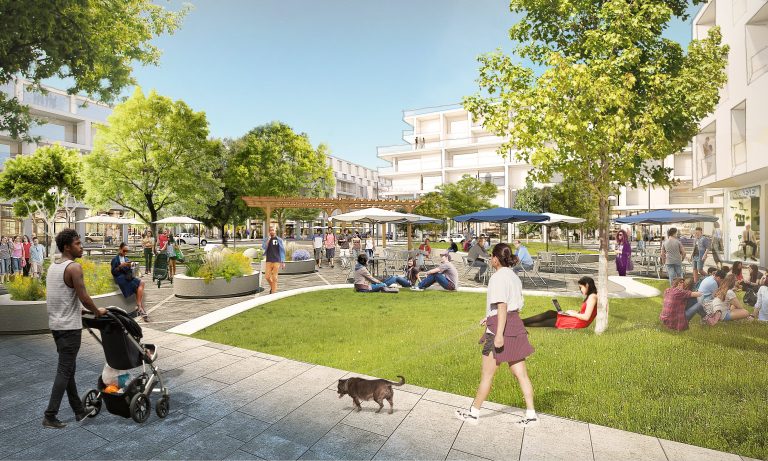Work in a company ... and live in it?
![]()
Facebook plans for the expansion of its Menlo Park headquarters include the construction of a 1.500-dwelling complex, with shops, supermarkets, pharmacies, parks, hotels and all the elements and infrastructure of a small city for the daily life of its workers, named Willow Campus.

The plans, whose construction would be extended to 2021, they are thought of as a way to alleviate one of the main problems that the workers of the company have when considering living in the area of the Bay of San Francisco: The costs of housing have risen to the point of becoming practically irrational. A lot of technology companies that pay higher salaries than average and that, on many occasions, they include in their negotiations with the workers the payment of all or part of the cost of the rent, they have generated a situation of brutal gentrification: in what some years ago were the worst areas of the city, today can not live any person with a salary considered reasonable.
The solution that Facebook seems to be designing is to offer housing to its workers in the vicinity of their workplace: some 225 apartments, 15% of the total, would be offered for rent at lower prices than those of the market, presumably to people of the company. Others could be offered openly, although specific details are not yet clear. The office space that would be created is also not defined if it would be for Facebook exclusive use or if it would be offered to other companies. In addition, Facebook is investing tens of millions of dollars in US101 improvements, which suffers heavy traffic collapses that can lead to remarkably high travel times.
What Facebook is designing is, for all the purposes, a small city, as can be seen in the video presentation: More than 160.000 square meters of offices, 1.500 houses, almost 12.000 square meters of commercial area, a mall, a cultural center, a hotel and a visitor center ... a real "Facebookville", I don't know whether or not including a statue of its founder:-) An idea that goes far beyond what other big companies have designed for their corporate headquarters: So far, we talked about converting those venues into authentic cities where tens of thousands of employees worked. Now, in addition, many of those employees could directly live in them.
The idea of providing an employee not just a job, but in addition, a house in the vicinity of it seems, in principle, extremely practical: a city design carried out by a company like Facebook is evident that it would not neglect at all the infrastructures necessary for its workers, the bandwidth or the appropriate transport systems. The experience of these workers could surely become very practical and functional, in a sort of "life in a bubble" that many would consider privileged, in which many of the interactions of their daily life would adapt to their circumstances. Facing the attraction and retention of talent, these companies would be able to offer a real immersive experience, a "all-in-one" solution that could surely be interesting for people who otherwise have to consider their professional movement as a whole complex puzzle filled with complications.
Where could a model of this type come from? What problems, advantages or drawbacks could you generate? My experience in Saudi Arabia, a country that is creating new cities from zero conceptualized and built by a company, it leads me to think that the gains in efficiency and approach when you can build a city from scratch are potentially enormous, to the point of a rethinking of many of the friction elements of everyday life in traditional cities. Is Facebook starting a trend towards the development of "corporate cities" that offer their workers an experience that tries to improve the benefits of life in the cities we know? Would you see yourselves living in a city in which the presence of the company for which you work is practically ubiquitous, because it has created and developed that same company?
They already do this in China.